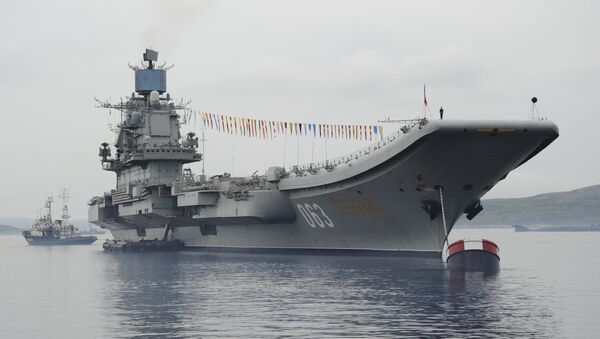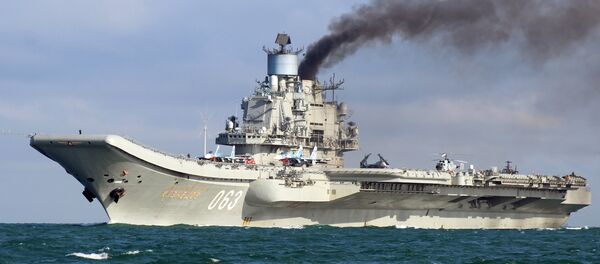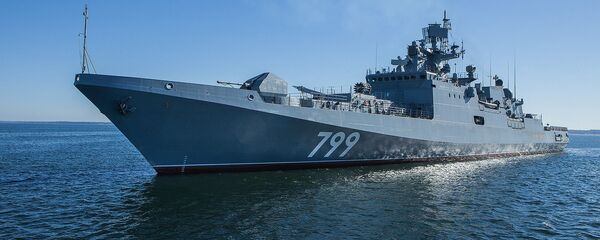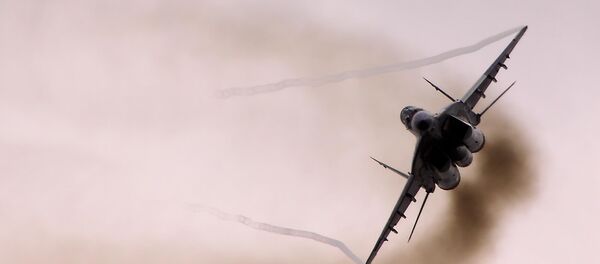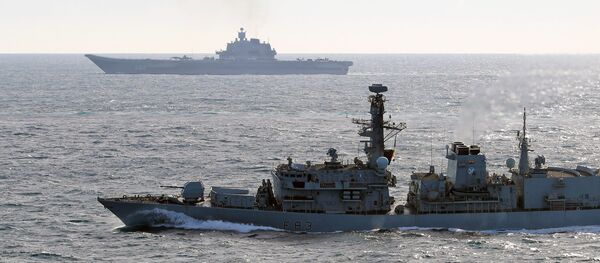"When you saw that old, dilapidated Kuznetsov sailing through the Channel, a few months ago, I think the Russians will look at this ship with a little bit of envy," he said, referring to the Queen Elizabeth.
Commenting on this, Russian Defense Ministry spokesman Igor Konashenkov said that "Fallon's statement regarding the superiority of the new British aircraft carrier over the Russian aircraft carrying cruiser Admiral Kuznetsov in terms of external beauty exposes his utter ignorance of naval science."
"In contrast, the Admiral Kuznetsov is armed with air defense and anti-submarine weapons, as well as with Granit anti-ship missiles," he added.
The HMS Queen Elizabeth is a 280-meter, 65,000-ton aircraft carrier. It is touted as the largest ship in the history of the Royal Navy. It was named after Queen Elizabeth I. The aircraft carrier is worth $3.8 billion and its construction took eight years.
On Tuesday, the Queen Elizabeth left the Scottish port of Rosyth to conduct sea trials for a week in the North Sea.
According to Russian military expert Viktor Baranets, it is totally incorrect to compare the Queen Elizabeth and the Admiral Kuznetsov.
"In this situation, the British defense secretary expressed his utter ignorance because the Admiral Kuznetsov is not an aircraft carrier. It is a heavy aircraft carrying missile cruiser. Our ship has some distinguished features that the British ship doesn’t have. The Admiral Kuznetsov has an arsenal that could make any other country be envious, including the United States and the UK," Baranets told Radio Sputnik.
Military expert Oleg Ponomarenko urged the British Defense Secretary to focus on warships' combat capabilities rather than the beauty of their exteriors.
"Our aircraft carrier is a more independent vessel and is much better protected if, for some reason, the escort ships are unable to perform their tasks," he said referring to 200 missiles on board the Admiral Kuznetsov and 200 more short-range missiles used by the Kortik anti-aircraft system. It is a very serious weapon," Ponomarenko said.
"This is not how a military man should behave. Each military has its advantages and disadvantages. It is inappropriate to make fun of a weapon. In fact, the Royal Navy could learn some lessons from the Russian Navy. I don’t know why their fleet is on a three-day alert each time they detect a Russian ship passing by," the expert said.
In January, Defense Secretary Fallon made a disrespectful remark about the Russian Northern Fleet carrier group led by the Admiral Kuznetsov returning from Syria to its base in northern Russia via the English Channel.
Fallon called the Admiral Kuznetsov a "ship of shame" and said that UK would be "man-marking these vessels every step of the way around the UK as part of its steadfast commitment to keep Britain safe."
"It explains all the hysterics of the British Defense Secretary. They find nothing better [to do] than to malign the successes the Russian Armed Forces demonstrated in Syria, poking fun at Russia's aircraft carrier group, among other things, and spreading false accusations about Admiral Kuznetsov; that it is outdated and poses some kind of a threat to them," Ermakov told Sputnik.
Last year, the Admiral Kuznetsov took part in a combat operation for the first time as the vessel was deployed to the Mediterranean to assist the Russian aerial campaign in Syria.
On February 3, the Russian Defense Ministry said that the air wing of the Russian aircraft-carrying cruiser Admiral Kuznetsov destroyed over 1,000 terrorist targets during its mission to assist the war-torn country.
During their mission to Syria, the warship and supply vessels of the Russian aircraft carrier group travelled nearly 18,000 nautical miles (20,700 miles).
In January, Russia decided to reduce its military presence in Syria, starting with the pullout of the Northern Fleet carrier group led by the Admiral Kuznetsov.
